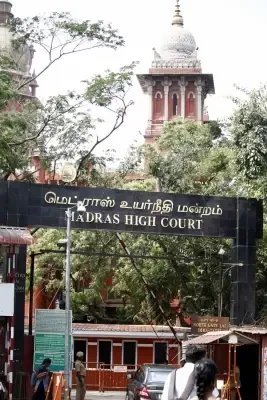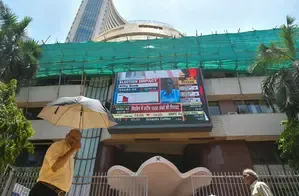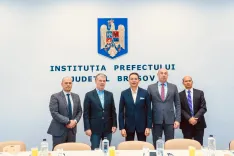Why Did the Madras HC Dismiss TN BJP Leader's Plea Against Police Summons?

Synopsis
Key Takeaways
- The Madras HC upheld the police's authority to summon individuals for inquiry.
- H. Raja's controversial speech was central to the legal proceedings.
- Compliance with police inquiries is crucial to avoid legal repercussions.
- The ruling highlights the intersection of law and political speech in Tamil Nadu.
- Judicial orders cannot be challenged simply because they stem from police inquiries.
Chennai, June 23 (NationPress) The Madras High Court has, on Monday, dismissed a petition from BJP leader H. Raja that sought to annul a police notice summoning him to appear for questioning regarding a contentious speech made during a Hindu Munnani protest earlier this year in Madurai.
Justice P. Velmurugan declined to consider the plea at the admission stage, asserting that an individual summoned for inquiry under Section 35 of the Bharatiya Nagarik Suraksha Sanhita (BNSS) lacks the legal standing to dispute such a notice.
The judge instructed H. Raja to present himself before the investigating officer and provide full cooperation with the ongoing inquiry.
This case originated from a demonstration on February 4 at the Pazhanganatham junction in Madurai, where Raja spoke at a gathering organized by Hindu Munnani. The protest aimed to address the purported encroachment of the Tirupparankundram hillock, which is home to the Subramaniaswamy Temple—one of the six revered abodes of Lord Murugan.
The dispute intensified following claims that a dargah had been unlawfully constructed on top of the hill.
After the event, the Madurai City Police filed a First Information Report (FIR) against Raja, citing multiple offenses under various sections of the Bharatiya Nyaya Sanhita (BNS), including Section 192 (provocation to incite a riot), Section 196 (fostering animosity between groups based on religion), and Section 352 (intentional insult to incite a breach of peace).
Following these developments, the Inspector of the Subramaniapuram police station issued a notice to Raja under Section 35 of the BNSS, summoning him for inquiry and mandating compliance with ten specific conditions.
These conditions included avoiding further offenses, not tampering with evidence, and appearing before the court as required.
The notice also cautioned that non-compliance could lead to potential arrest. Raja, in his petition, contended that law enforcement had exceeded their jurisdiction by enforcing conditions typically reserved for judicial magistrates.
Although the petition was initially submitted to the Madurai Bench of the High Court, it was subsequently moved to Chennai, where Justice Velmurugan, who oversees cases involving sitting and former MPs and MLAs, presided over the proceedings. In rejecting the plea, the court reaffirmed the investigative powers of the police and stressed that summonses issued for inquiry cannot be regarded as judicial orders subject to challenge.









